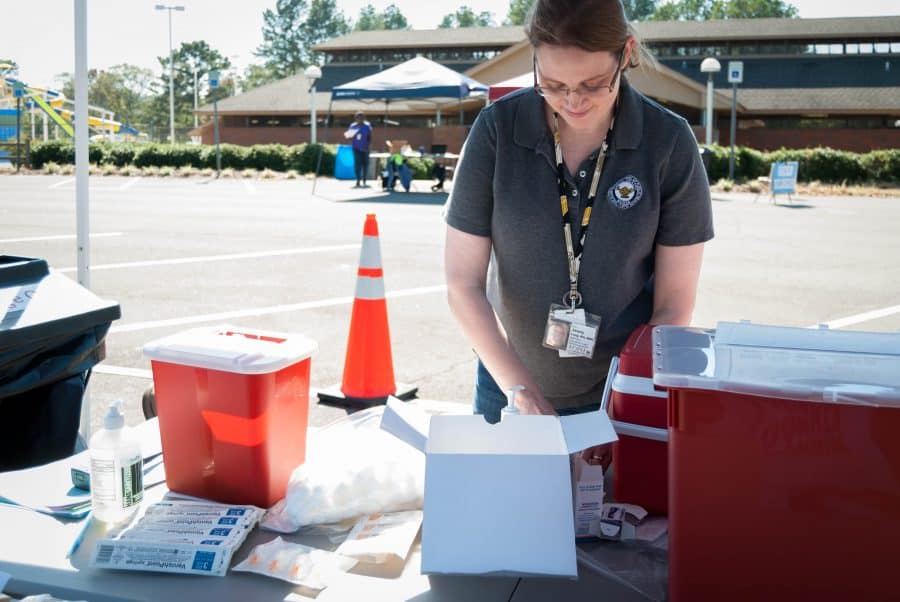Last week, Professor John McDuffie, a part-time temporary instructor with the University in the chemistry department, died at home after contracting the flu.
“He will be missed by those who knew him,” said Chris Bryant, the assistant director of media relations for the University.
Brian Carpenter, a freshman prospectively majoring in athletic training who was in McDuffie’s Chemistry 101 class, said he was there for the first day, but by the next class they had a new instructor.
There have been 49 out of 50 states that have reported widespread influenza activity, with many of them declaring state public health emergencies, and Alabama is no exception.
While most people who contract the flu usually recover without complications, the young, elderly and chronically ill are more likely to experience severe consequences from the disease. Therefore, if someone doesn’t fall under those categories and also doesn’t experience extreme symptoms like vomiting, confusion or a fever above 104 degrees, Dr. William Crawford, a physician in the emergency department at the DCH Regional Medical Center, said it may be better to just stay home.
“Many people are more comfortable treating it at home with Tylenol, Advil, drinking plenty of fluids and staying isolated from other people – just staying and resting for three or four days,” he said.
Students and faculty can also visit the Student Health Center on campus as an alternative to the emergency department if they want to see a medical professional but don’t want to face the crowds of the emergency room. During normal operations, Crawford said the emergency department usually sees around 1,400 patients a week, and last week the emergency department alone saw 600 people with flu-like symptoms. This same week last year the department saw only 240 possible flu patients, and the numbers are still rising week to week.
“We haven’t been overwhelmed to the point where we have stopped seeing patients,” Crawford said. “We haven’t closed our emergency department for patients or anything of that nature, but certainly we are more busy.”
Crawford said the emergency department has been able to maintain mostly normal work hours since the department tends to be heavily staffed, but the hospital itself has called in extra staff for the admitted patients.
Brad Fisher, the corporate director of marketing and communication at DCH, said in an email that while the more than 100 percent growth of emergency department patients specifically applies to DCH, “it’s a good indicator of what other clinics are seeing in the area.”
The specific breakdown for flu vaccine efficacy is not yet available, but the CDC has said certain people should not use the nasal spray as a preventative measure this season.
“There’s lots of things you can do to reduce your chances of contracting the flu. If you’re sick, stay at home from school, stay at home from work,” he said. “Manners that our parents taught us when we were younger: cover your mouth when you sneeze, cover your mouth when you cough, etc… but the biggest thing is just stay away from other people when you’re sick. That reduces the transmission of flu tremendously,” he said.
DCH has issued a few guidelines to help block the spread of the virus. Visitors should only visit patients one at a time, and children and anyone who feel sick should postpone their visit a little longer.
“We’re trying to limit to one person per patient simply because we’re trying to limit the exposure of both our other patients, our staff – to the people coming in with the patients. We don’t want them to get the flu either from coming to the emergency department,” he said.
According to the CDC, the flu season in the U.S. tends to peak between December and February, but technically can last from late October to early May, and Crawford said if anyone hasn’t received the vaccine yet, they should now.









